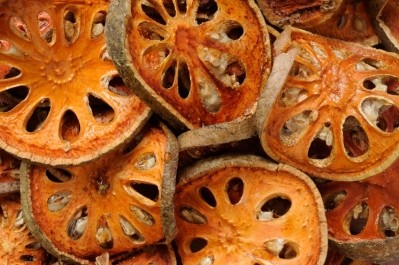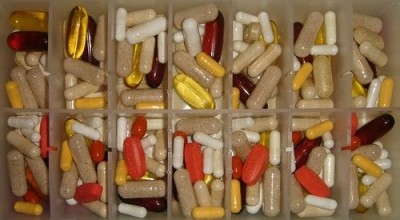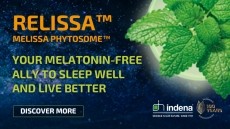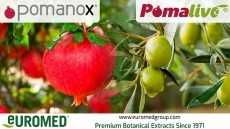USPLabs promises new data that ‘definitively’ proves presence of DMAA in geranium

USPlabs, which markets top-selling pre-workout supplement Jack3d, told NutraIngredients-USA: “A detailed analytical study confirming the presence of 1,3 dimethylamylamine, and 1,4 dimethylamylamine in the geranium plant obtained from China is due to be released in the respected journal Analytical Chemistry Insights.”
New research found DMAA in geranium plants and oil from China
Company spokesperson Kerri Toloczko added: “The peer-reviewed study, performed at Intertek/AAC Labs in Champaign, Illinois, isolated the compounds 1,3 dimethylamylamine and 1,4 dimethylamylamine from the geranium plants.
“The researchers utilized a fully validated method to identify and quantitate 1,3-DMAA and 1,4-DMAA in geranium plant and oil obtained from several regions of China where they are grown and consumed as food.”
The study, ‘Identification and Quantification of Dimethylamylamine in Geranium by Liquid Chromatography Tandem Mass Spectrometry,’ will be published shortly, she said.
Armstrong: DMAA extracted from supplements had diastereomeric ratios that were indistinguishable from synthetic DMAA standards
USPLabs was speaking to NutraIngredients-USA following the publication of a paper by Dr Dan Armstrong et al at the University of Texas, Arlington, which tested 13 dietary supplements plus eight commercially available geranium extracts.
The authors concluded: “It appears unlikely that the DMAA in supplements originates from natural sources such as geranium oils for three reasons: The DMAA extracted from these supplement products had diastereomeric ratios that were indistinguishable from the synthetic DMAA standards; they are all racemic; and no DMAA was detected at a level of ≥10 ppb in any of the 8 geranium oil samples.”
USPLabs: Armstrong paper is inaccurate
However, these conclusions are “inaccurate, and contradictory to the researchers’ own study abstract and supporting documents”, claimed USPLabs.
“In fact, previous versions of the study and its corresponding press release [the study’s publication was delayed owing to what the publisher Wiley described as a ‘typo’ last month] acknowledged finding DMAA in two geranium oils, but that information was inexplicably removed from the final versions.
“And on the Wiley website, the authors’ own summary states, ‘DMAA was either not found in natural geranium extracts or in two cases, at trace levels with a different stereoisomeric composition’.”
Armstrong: All eight samples were then re-tested and no DMAA was detected at a level of ≥10 ppb in any of them
But Dr Armstrong told NutraIngredients-USA this was highly misleading. Publication of the paper had in fact been delayed for two reasons, he said.
First, while the original version had indeed said that DMAA had been detected in two geranium oil samples at the level of less than 10ppm, the correct figure was in fact at the 10s of parts per billion (ppb), he said. Subsequent analysis then proved that this trace level had in turn been due to contamination of his instruments.
“All eight samples were then re-tested and no DMAA was detected at a level of ≥10 ppb in any of them”, said Armstrong, who was on a plane to Italy for a conference at the time the paper was originally due to be published and said he - and not the publisher - had insisted on withdrawing it until this matter had been corrected.
“There was no doubt. DMAA was just not there at a detection level of 10 ppb or more.”
Conflict of interest
The other reason for the delay was in order to gain permission to make a statement about a possible conflict of interest (Armstrong had served as an expert witness in a 2011 lawsuit concerning DMAA - DeRosier v. USPLabs), he said.
“I needed permission to make a conflict of interest statement and I did in fact finally receive this and turned things around within three days of returning from Italy.
“The frustrating thing for me is that while the publisher [Wiley] published the correct final revision of the paper this week, they inadvertently published the old unrevised supplemental information [which USPLabs refers to in its statement] rather than the latest correct material and this has confused matters [the error has since been corrected].
"The main point that has never changed is that DMAA used in dietary supplements is clearly indistinguishable from synthetic samples."
It would not be accurate to describe synthetic DMAA in supplements as synthetic botanical constituent
He added that the key finding of his paper was that the DMAA used in dietary supplements is actually a mixture of four compounds and is clearly of synthetic origin and that “even if someone, somewhere, were to discover natural DMAA at, some trace levels in a geranium product", it would be chemically different to the DMAA used in supplements.
In other words, it would not be accurate to describe the synthetic DMAA in supplements as ‘nature identical’ or a ‘copy of a botanical constituent found in geranium’ – and therefore a lawful dietary ingredient, he said.
“The chemistry is different - if it were in geranium, it would have different isomeric ratios and could not be described as a synthetic botanical constituent.
"The FDA has long been long aware of the fact that different isomers can have very different physiological and pharmacological effects. That is why they published guidelines for isomeric drugs in 1992."
















